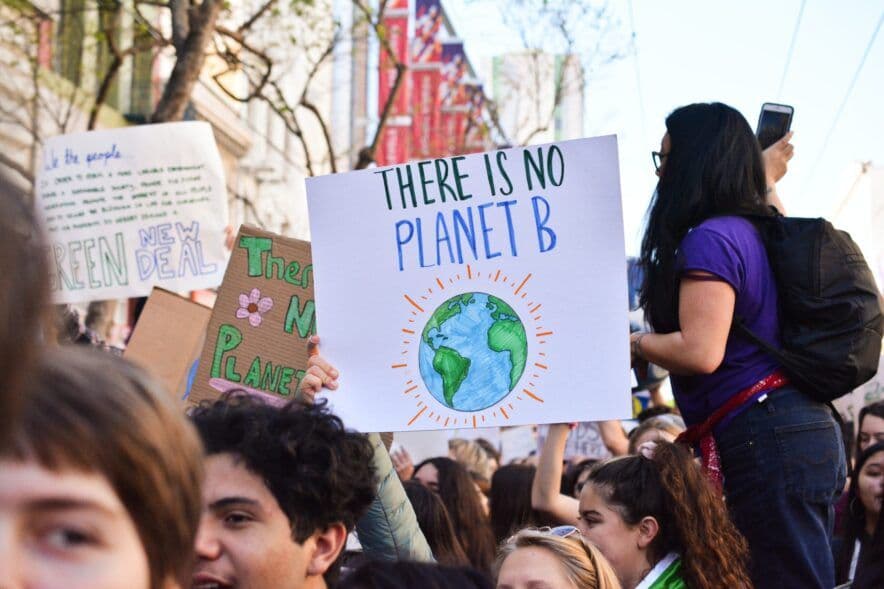Research
There’s a climate change emergency, and children need to be responsive: UNESCO

Freya Lucas
Jan 25, 2023
Save
A new report from UNESCO has described “a planet in peril,” outlining the need to help children to be responsive to climate change, and for the adults who support them to take action to protect the environment.
Reimagining Our Futures Together: a New Social Contract for Education builds on discussions held at UNESCO’s World Conference on Early Childhood Care and Education (WCECCE) in Tashkent, Uzbekistan last year.Participants reaffirmed through the adoption of the Tashkent Declaration and Commitments to Action for Transforming Early Childhood Care and Education (ECCE) that “[ECCE] should be contextually situated and culturally relevant yet responsive to global challenges like climate change, conflicts and crises”.
To place young children at the heart of greening communities, participants noted, it is important for all stakeholders – policymakers, leaders, teachers and non-governmental organisations (NGOs) – to put ideas into actions that will safeguard the planet.
Raising awareness of climate change and sustainable development
To prepare next generations to deal with climate change, governments should integrate early sustainable development (ESD) into their national ECCE curricula, participants noted, sharing examples of how this has been done across the cohort.
Ms Tove Mogstad Slinde, Senior Adviser of the Norwegian Ministry of Education and Research, shared that the Norwegian Kindergarten Act emphasises sustainable development as a core value, and aims to build a sense of responsibility and care for the environment among young children.
Adrijana Visnjic-Jevtic, Vice President of OMEP, introduced an Erasmus+ funded project, which engaged several universities and organisations from Europe, to create an online curriculum called Sustainability from the Start that consists of eight modules for teachers to incorporate in their classrooms.
Similarly, Leslee Udwin, Founder and President of Think Equal, a global initiative calling for a system change in education, presented narrative picture books that communicate environmental issues in an accessible way to young children.
Transforming the learning environment and school culture
UNESCO Chair in Early Childhood Education and Sustainable Development Professor Ingrid Pramling Samuelsson said that “sustainable development is something that both has to be communicated with children and to be lived in every-day practice”.
Professor Samuelsson introduced a program in Sweden that uses a whole-school approach to transform preschools to become sustainable. Such a transformation needs to involve the entire school community: headmasters and leaders are responsible for the process of change in preschools and generation of data for research; teachers should reflect on and evaluate their current practice, and create innovative ways to discuss sustainable development with learners.
Dr Dudu Hlophe, Acting Senior Inspector of ECCDE at the Ministry of Education of Eswatini, presented their work on engaging with communities in ESD. In five model schools in Eswatini, elements of sustainable development are introduced in teacher training.
In addition, schools involve parents and local communities to support greening efforts. For example, students and parents take care of trees and school gardens regularly and even during holidays, to demonstrate that sustainable development is an everyday practice.
Mobilising children to take initiative and responsibility
Once students have developed environmental awareness, the next step is to take initiatives and responsibility to be active agents of sustainable development.
In Columbia, an NGO called aeioTU started a collective initiative and provided high-quality ESD to 500,000 children of all socioeconomic backgrounds. Moreover, Maria Adelaida Lopez, Executive Director of aeioTU, shared a beautiful example: on a field trip to Playa, students discovered the sad landscape of a swamp forest filled with garbage; thus, these young children took initiative and mobilised local communities and authorities to extract more than four tons of garbage from the swamp.
Ms Lopez affirmed that the culture of early childhood and their transformative power as catalyst for change could truly make tangible contributions to protecting our planet.
The panel discussion showcased innovative ESD programs in ECCE from various parts of the globe and provided examples of awareness raising to action-mobilising steps. The session also demonstrated that successful ESD could be developed and implemented in any context, regardless of socioeconomic status or geographical location.
As affirmed in the Tashkent Declaration, ECCE should ensure that children develop the skills, values, and attitudes to tackle climate change challenges, be responsible global citizens and fully participate in society.
To read the report in full, please see here.
Don’t miss a thing
Related Articles



















